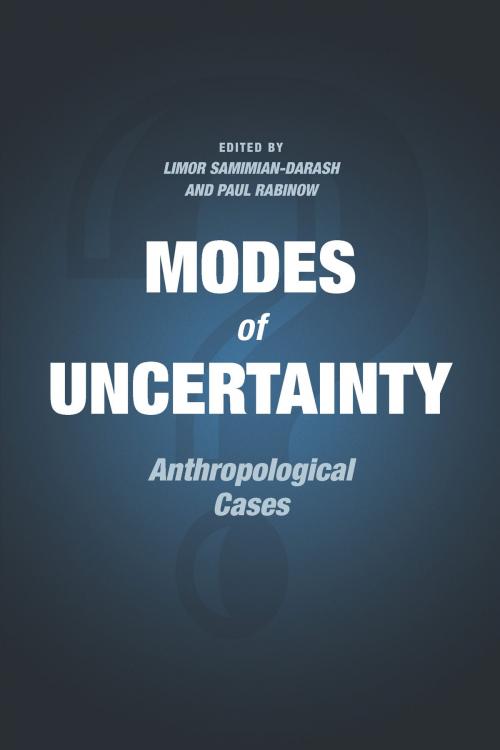Modes of Uncertainty
Anthropological Cases
Nonfiction, Social & Cultural Studies, Social Science, Anthropology, Sociology| Author: | ISBN: | 9780226257242 | |
| Publisher: | University of Chicago Press | Publication: | July 15, 2015 |
| Imprint: | University of Chicago Press | Language: | English |
| Author: | |
| ISBN: | 9780226257242 |
| Publisher: | University of Chicago Press |
| Publication: | July 15, 2015 |
| Imprint: | University of Chicago Press |
| Language: | English |
Modes of Uncertainty offers groundbreaking ways of thinking about danger, risk, and uncertainty from an analytical and anthropological perspective. Our world, the contributors show, is increasingly populated by forms, practices, and events whose uncertainty cannot be reduced to risk—and thus it is vital to distinguish between the two. Drawing the lines between them, they argue that the study of uncertainty should not focus solely on the appearance of new risks and dangers—which no doubt abound—but also on how uncertainty itself should be defined, and what the implications might be for policy and government.
Organizing contributions from various anthropological subfields—including economics, business, security, humanitarianism, health, and environment—Limor Samimian-Darash and Paul Rabinow offer new tools with which to consider uncertainty, its management, and the differing modes of subjectivity appropriate to it. Taking up policies and experiences as objects of research and analysis, the essays here seek a rigorous inquiry into a sound conceptualization of uncertainty in order to better confront contemporary problems. Ultimately, they open the way for a participatory anthropology that asks crucial questions about our contemporary state.
Modes of Uncertainty offers groundbreaking ways of thinking about danger, risk, and uncertainty from an analytical and anthropological perspective. Our world, the contributors show, is increasingly populated by forms, practices, and events whose uncertainty cannot be reduced to risk—and thus it is vital to distinguish between the two. Drawing the lines between them, they argue that the study of uncertainty should not focus solely on the appearance of new risks and dangers—which no doubt abound—but also on how uncertainty itself should be defined, and what the implications might be for policy and government.
Organizing contributions from various anthropological subfields—including economics, business, security, humanitarianism, health, and environment—Limor Samimian-Darash and Paul Rabinow offer new tools with which to consider uncertainty, its management, and the differing modes of subjectivity appropriate to it. Taking up policies and experiences as objects of research and analysis, the essays here seek a rigorous inquiry into a sound conceptualization of uncertainty in order to better confront contemporary problems. Ultimately, they open the way for a participatory anthropology that asks crucial questions about our contemporary state.















